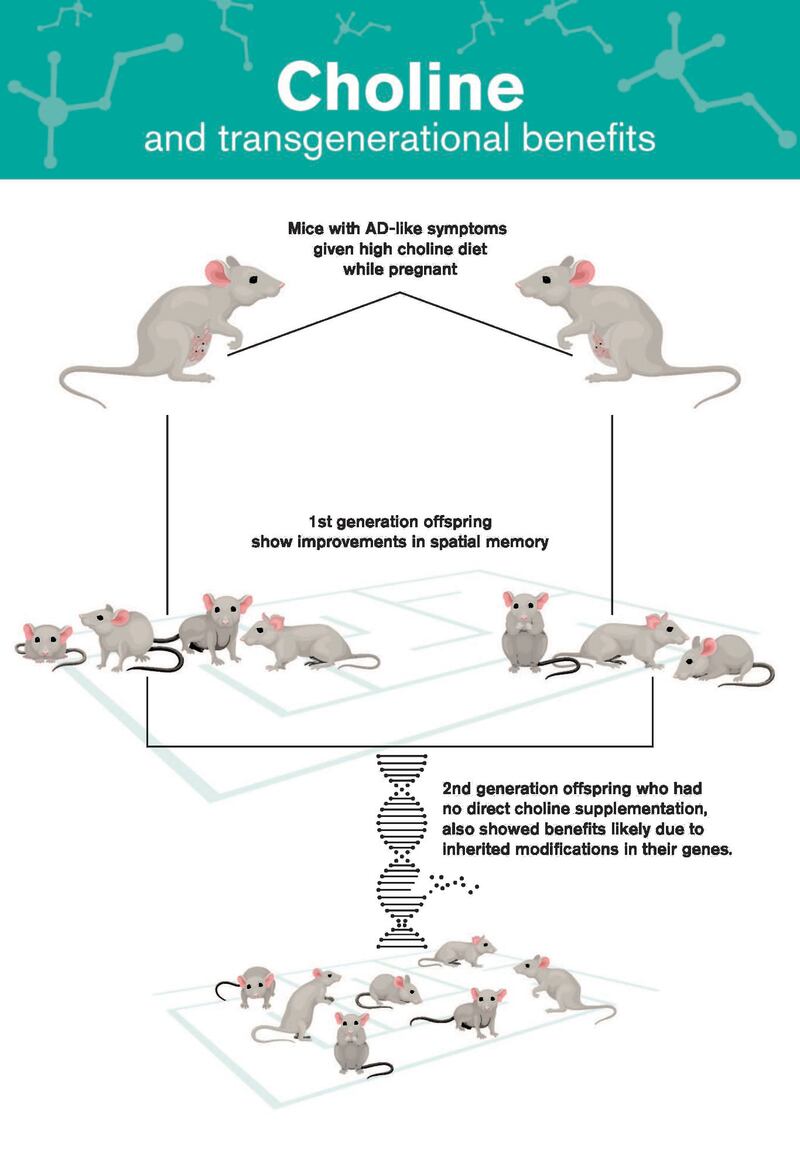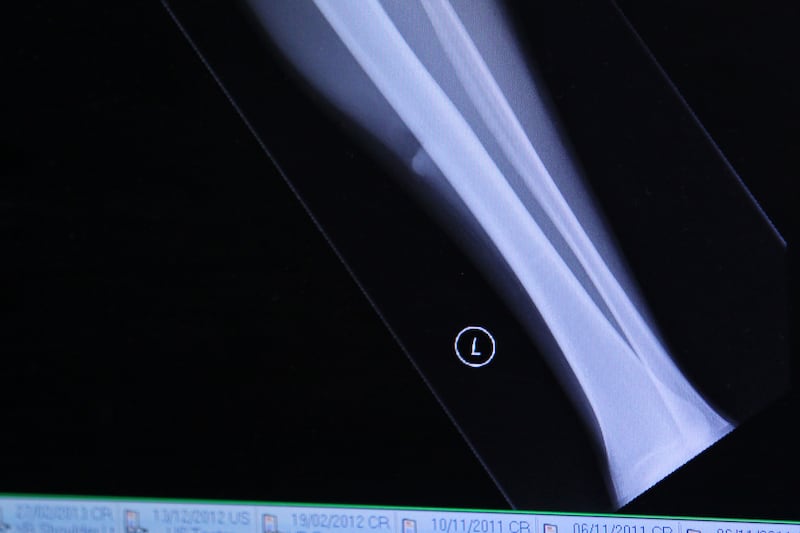An essential nutrient widely sold as a health supplement may protect against Alzheimer’s disease from one generation to the next, research suggests.
Scientists fed pregnant mice with an inherited rodent version of the disease diets fortified with choline, which is known to play an important role in nervous system development.
They found that offspring of the mother mice appeared to be protected from the effects of Alzheimer’s.
Compared with the offspring of mice not given the supplement, they performed significantly better in water maze experiments designed to test memory.
When a new generation of mice was bred from the offspring, they displayed the same kind of enhanced memory despite having no contact with supplemental choline.

The US team believes choline causes epigenetic changes – inherited modifications to genes – that cross generations.
Although the research is at an early stage, the team claims it raises hopes of a safe and simple treatment that could help protect successive generations against Alzheimer’s.
Lead scientist Dr Ramon Velazquez, from Arizona State University, said: “No one has ever shown trans-generational benefits of choline supplementation. That’s what is novel about our work.”
News of the research, published in the journal Molecular Psychiatry, coincides with new revelations about EastEnders star Dame Barbara Windsor’s battle with Alzheimer’s.
Her husband Scott Mitchell has said she is now so badly affected, he cannot leave her by herself any more.
Dame Barbara, 81, was diagnosed with the disease in 2014, but her condition was only made public last year.
Dame Barbara's husband Scott Mitchell opens up about her Alzheimer's.
He and other friends and family will be running a marathon to raise money for dementia research. pic.twitter.com/m6K6NE8iNz
— Good Morning Britain (@GMB) January 8, 2019
Choline is a vitamin-like nutrient present in a range of foods including green vegetables, mushrooms, meat, poultry, fish, and especially eggs and liver.
It is used in the body to produce acetylcholine, an essential neurotransmitter chemical that aids the passage of nerve signals.
Choline’s role in early brain development has long been recognised, and pregnant women are advised to consume 550mg of the nutrient per day.
“Choline deficits are associated with failure in developing foetuses to fully meet expected milestones like walking and babbling,” said Dr Velazquez.
“But we show that even if you have the recommended amount, supplementing with more in a mouse model gives even greater benefit.”
Brain tissue taken from the test mice confirmed gene modification in the hippocampus, a region known to play a central role in memory, said the researchers.
Exposure to choline supplementation was associated with reduced levels of homocysteine, a protein building block known to double the risk of Alzheimer’s disease in humans.
Genes involved in the activation of microglia – cells responsible for clearing away unwanted debris in the brain – also appeared to be affected by the nutrient.
Over-active microglia are thought to kill brain cells and contribute to dementia.








